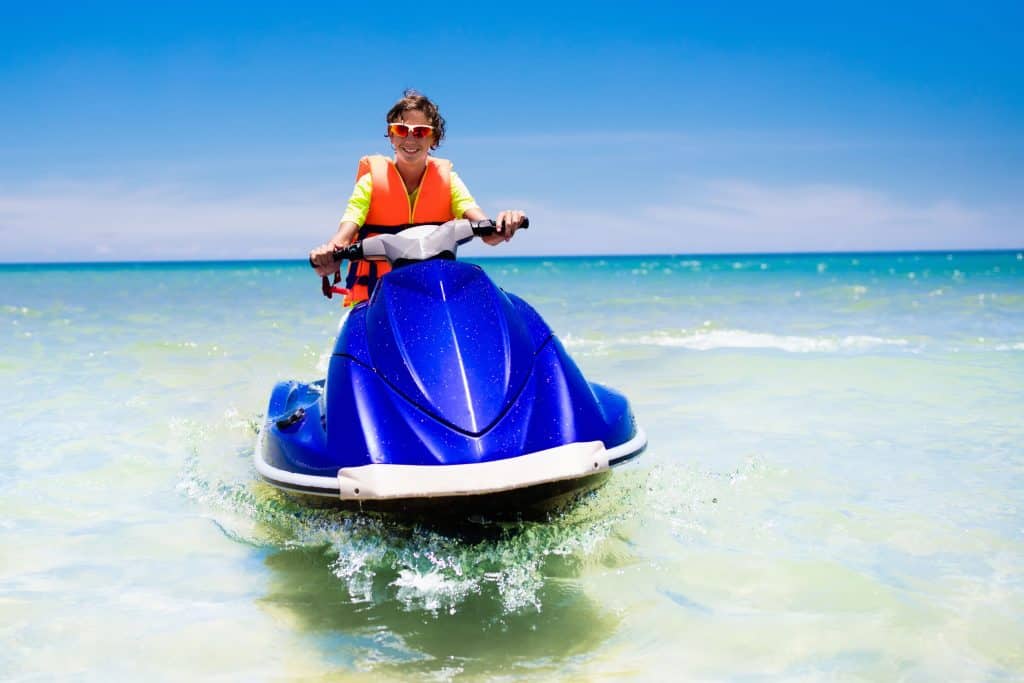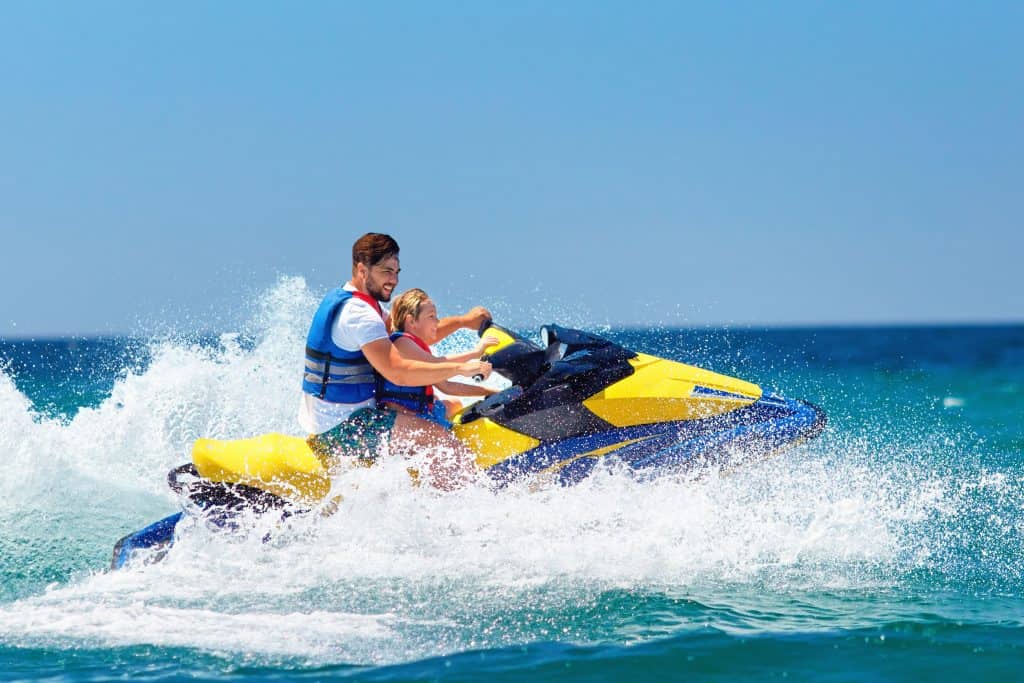
When it comes to operating a jet ski, there are different age restrictions all around the country! New York has its own rules and regulations and they are stated in this article.
A person who is 14 years or older may drive a jet ski if they pass a boating safety course approved by the New York State Office of Parks and carry the boater safety certificate with them on board.
Steps to Becoming a Young Operator
Once you turn 14 years old, you are able to apply for your boater safety certificate. There is a simple list of steps you take to get your license:
- You must sign up and complete a state-approved course (either online or in the classroom)
- Pass the final exam by getting 76 percent or higher on the exam (this means you have to get 46 questions correct out of 60)
- Print out your temporary card immediately and then receive your permanent card in the mail (In New York you can also choose to have your certification noted, as an anchor icon, on your New York driver’s license or any other document issued by your DMV.)
On Boaterexam.com you can take the New York Boating Safety course. This is the most popular option to take because from the comfort of your own home you can study the PWC rules and prepare for the exam.
If you were born on or after May 1, 1996, you are required to have a boating safety certificate in New York. No matter what your age, you are required to complete a Boating Safety Education Course in order to operate a jet ski.
Required Understanding New York’s Boating Rules
- Any child under the age of 12 on a boat 65 feet or less in length must wear a fitted US Coast Guard approved life jacket
- Anyone underway in a boat less than 21 feet in length between November 1 through May 1 must wear a life jacket (this includes canoes, kayaks, rowboats)
- You may operate PWCs between sunrise and sunset, not after the sun goes down
- If on the water at all you need to wear a life jacket
- You must carry a US Coast Guard approved visual distress signal
- You need to have a sound signaling device that is capable of a two-second blast that is audible for a half mile
- Even though an anchor and fire extinguisher are not required under the state law, you must carry a fire extinguisher when operating in federal waters.
- An engine cutoff (lanyard with the key attached to the driver’s arm)
- There is no operating above 5 miles per hour within 100 feet of the shore, dock, float or anchored boat
- No operating within 500 feet of a marked swim area
- No operating in a reckless manner: wake jumping, weaving through watercraft traffic, carrying more passengers than is recommended by the manufacturer
Towing Regulations in New York (For Youngsters)
- Any vessel towing a water skier, para-sail, tube, etc. must have an observer in addition to the driver that is at least 10 years old
- Towing activities are limited to the hours between sunrise and sunset provided that visibility is not reduced
- Anyone who is being towed by a vessel must wear a fitted US Coast Guard approved life jacket. It does not matter whether the person is on a water ski, inner tube, para-sail, etc. they still need a life jacket
- The preferred life jacket for these activities (towing) are called type III special purpose device. These specific life jackets are impact rated, form fitting, and helps with visibility for the skier (rider)
- Remember that the person/persons being towed count as a passenger/s on the PWC. Exceeding the number specific to your jet skis manufacturer’s recommendation can be written up as reckless operation.
Regulation Enforcement in New York

You are required to carry your card with you when in the water at all times. If you are found without one you may be fined. New York prohibits the reckless operation of a jet ski or any other vessel. Here are some examples of reckless driving that you should always avoid:
- Failure to regulate speed. If you are driving faster than is reasonable in the conditions you are in (vessel traffic, bad weather, close riding to the shoreline, etc.) you are being reckless. Some examples include speeding when close to other vessels or PWC, going above the speed limit in a “slow, no wake speed” area, driving at a speed that causes damage from the wake of your PWC.
- Improper distance. It is illegal to drive your jet ski above 5 miles per hour when within 100 feet of the shore, dock, pier, raft or float, or an anchored vessel.
- Riding on the bow, deck, or gunwale. If you allow passengers or guests to ride on the bow, gunwale, transom, seat backs, seats on raised decks, or any other place without equipped seating where there is a chance of falling overboard, you are breaking New York boating rules.
- Unsafe Condition. This is when you operate your PWC in a condition that causes a hazard to those onboard or others in the water. It is possible that law enforcement officers may direct you to the nearest dock or shore and tell you may not operate again until the condition is corrected. Some of the possible unsafe conditions include an overloaded PWC, there is not personal flotation devices on the passengers, not any fire extinguishers or backfire flame arrestors on board, the operator is intoxicated with drugs or alcohol, etc.
Boater Safety Certification Requirements for Young Residents of other States
If you are from another state and are just visiting New York, you can still operate on New York waters if you have a safety certificate from your own state that is approved by the National Association of Boating Law Administration (NASBLA).
Exemptions
There are a few exemptions of people who do not need to have a boater safety education certificate to operate a boat/PWC:
- If you are from another state and have your boating certificate approved by NASBLA from your home state
- You are from another country visiting New York
- State certified instructors
- Certified instructors of the US Coast Guard and the US Power Squadrons
- Police or peace officers, fire/rescue personnel and lifeguards acting pursuant to their assigned duties
